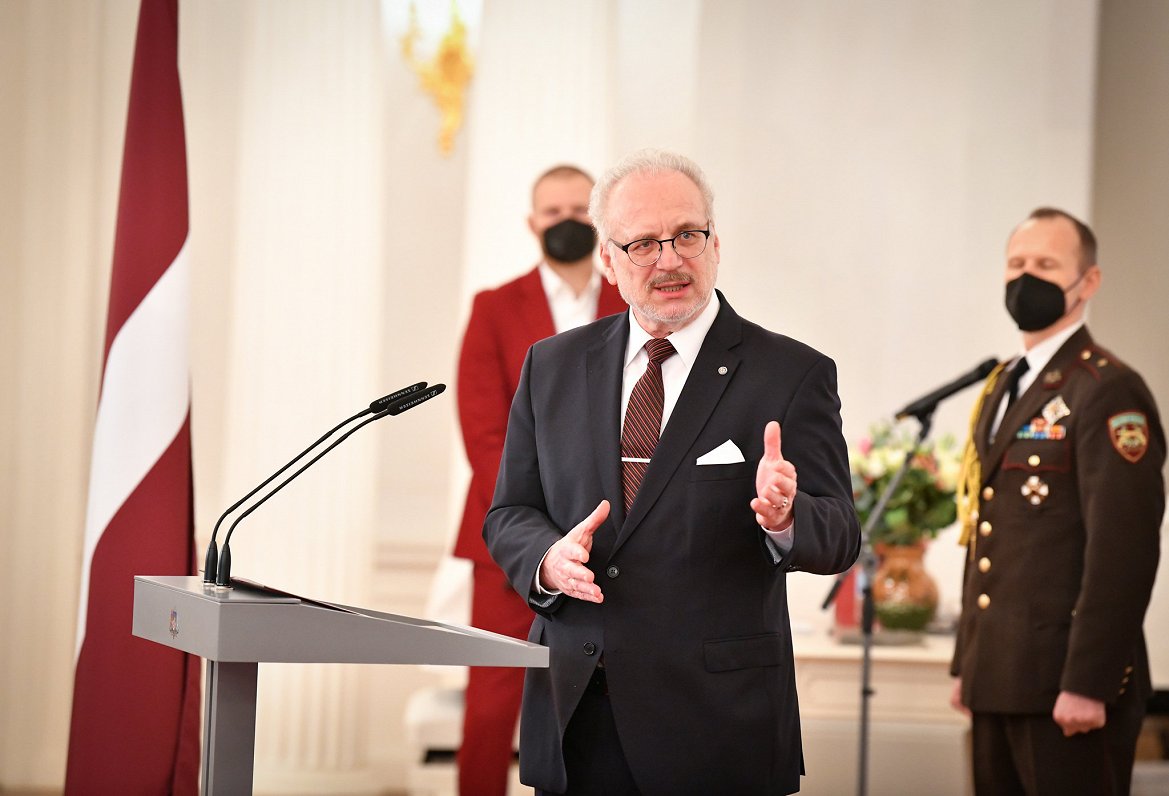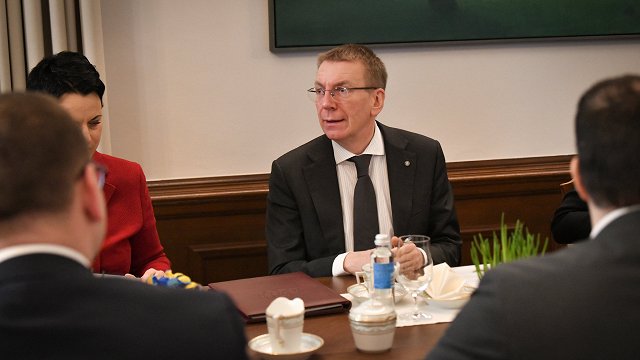1. In recent weeks, Russia has significantly intensified the threat of a military invasion of Ukraine. Its rhetoric is extremely aggressive, without any respect for another country’s sovereignty and international law.
2. A new dimension in Russia’s aggressive rhetoric is the ultimatum to the whole NATO Alliance and its members. The demands include both the withdrawal of NATO troops and equipment from the 14 NATO members that joined after 1997 and guarantees that no new members will join NATO.
3. Since the 2008 invasion of Georgia and aggression against Ukraine from 2014, Russia is demonstrating its intention to rebuild the Soviet Empire, which collapsed between 1990 and 1991 as a result of the efforts of oppressed nations longing for freedom. Russia’s political thinking is stuck in the categories of 19 th century imperialism, when the greatness of the country was measured by the size of captured territories and Europe was divided into spheres of influence.
4. NATO, the world’s strongest defence organization of democracies, and the European Union as the world’s strongest union of economic and democratic values, are based on mutual solidarity. Both NATO and the European Union are ready to defend their values.
5. No matter how hard Russia tries the wheel of history cannot be turned back. Russia’s way of thinking and its claims against NATO as an organization, against NATO members and against Ukraine are unacceptable. Spheres of influence or areas of privileged interest have no place in today’s Europe and the world. They are contrary to the principles of peace set out in the 1945 UN Charter, to international law, to the right of peoples to self-determination, to the basic principles of democracy. Each country has the right to choose its own defence policy, its allies and the organizations it wants to join. A country that is aggressive and wants to bring back the past does not engender trust in its neighbors.
6. Dialogue by Western Allies with Russia to try to de-escalate the situation is desirable. However, the demands made by Russia cannot be the basis for this dialogue and are not negotiable. In the dialogue it is possible to look for individual points of contact, for example, on arms control, incident prevention and other issues.
7. Latvia appreciates the transparency of the United States and its consultations with Allies in its negotiations with Russia. The United States is negotiating on the basis of “nothing about you without you”. This is essential to ensure the unity of the Western Allies and is in line with NATO’s principles and objectives.
8. Any aggression against another country cannot be insignificant. In the current situation, lofty rhetoric alone is not enough. In order to prevent Russian aggression, the cost that Russia would have to pay for it must
outweigh the benefit. This means that the response from the United States, NATO and the European Union, especially in the area of sanctions, must be united and unavoidable. A United West is stronger than Russia in all areas.
9. Russia’s new threat of aggression against Ukraine must met with a strong response. This includes the supply of arms and military equipment to Ukraine, economic sanctions against Russia and the redeployment of NATO military units within member states. We welcome the decisions taken by the United States on the readiness to relocate forces in order to strengthen security on the eastern flank.
10. We, Latvians, understand the feelings of the Ukrainian people. Latvia is in solidarity with Ukraine. Any threat to Ukraine's independence, sovereignty and territorial integrity is unacceptable. Latvia will always stand for the sovereign right of Ukraine to determine the path of its own development.
11. Latvia supports strong and effective sanctions against Russia if it invades Ukraine. Like the United States, Great Britain, Poland, Lithuania, Estonia and other NATO members, Latvia will also provide military assistance to Ukraine. We will send air defence missile systems and other equipment to Ukraine.
12. There can never be too much security. Given the international situation, I call on the government and parliament to continue discussions on strengthening defense capabilities, paying special attention to the
promotion of our national defense industry. It is equally important to strengthen resilience to hybrid attacks and cyber security, as well as to increase energy independence.
13. Every citizen of Latvia can contribute to the defence of our country. I would especially like to emphasize service in the National Guard. These are people who, alongside their daily work, consider it their patriotic duty
to be ready to defend our nation and country, our freedom and democracy. I call on you to join the National Guard and strengthen the common security of Latvia, Europe and NATO!
14. In Latvia we can feel safe. Latvia is a member of NATO and is protected by Article 5 of the NATO Treaty, which states that an attack against one member state shall be considered an attack against them all. We have
troops from 10 NATO member states permanently stationed in our country. Latvia devotes more than 2 % of its gross domestic product to defence. The national armed forces are very well prepared and equipped. They perfectly fulfil their mission in Latvia, participate in international missions and are highly regarded. We stand in solidarity and contribute to NATO’s common defence, and we are confident in the solidarity of other NATO members with us.

































